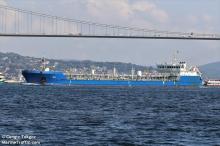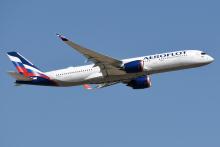The Washington Post today published an investigation showing that US-origin software is central to China’s hypersonic missile development. This is part of a broader trend in which US originated technology, including semiconductors, have been exported to key strategic end uses in China.
Earlier today the Bureau of Industry and Security (BIS) announced an interim final rule to be fully released on October 13th. The rule will amend the EAR for controls on “controls on advanced computing integrated circuits (ICs), computer commodities that contain such ICs, and certain semiconductor manufacturing items” as it relates to China. This is paired with a renewed emphasis on controls targeting supercomputer and semiconductor manufacturing end uses.
- Read more about New BIS Rules on Semiconductor Transactions
- Log in to post comments
CNS’s office in Washington, DC today launched a website focused on export control compliance topics. CNS in DC is undertaking research into export controls for emerging technology controls, particularly in the context of strategic competition. As part of that research, the DC office has developed guidance for several emerging technology sectors on how best to ensure compliance with export controls and nonproliferation aims more broadly. A central purpose of the website therefore is to distill the sectoral guidance generated as a result of this research.
What you need to know
What you should know
Proliferation finance in its current form is a relatively new topic. For example, the Financial Action Task Force (FATF) added proliferation finance to its recommendations (along with countering terrorist financing and money laundering) in 2012. [https://www.fatf-gafi.org/about/historyofthefatf/]. The issue of how proliferation is financed predates this development and is broader in conception than FATF's approach, which is relatively narrowly focused on designated entities.
What You Need to Know
Export controls give states a tool to ensure that exported goods and technology are not used to support end uses and end users of concern. End uses of concern can include state programs of concern, as well as terrorism or sanctions evasion. Export controls are always more effective when implemented by a larger number of states. Cooperation on export controls is often in the interests of states, even amongst adversaries.
INTRODUCTION
In December 2021, a Danish court fined and convicted the Dan Bunkering shipping firm and its parent company, Bunker Holdings, millions for dollars and gave a four-month suspended prison to the company’s CEO over a European Union sanctions-busting scheme.[1] The company was convicted of selling jet fuel to Russian companies, which in turn transferred the fuel on to Syria in contravention of EU sanctions. The company, which is the largest bunker supplier in the world, is alleged to have made 33 sales of jet fuel worth $102 million between 2015 and 2017.[2]
New export controls on semiconductors to Russia, in combination with sanctions impacting the Russian economy. Some estimates put the trade of semiconductors to Russia at $50 billion.[1] But these impressive number bely the fact that Russia buys end products with chips and integrated circuits and does not have a strong industrial base to produce cutting edge semiconductors themselves despite attempts by the Kremlin to build a domestic production capacity.[2]





